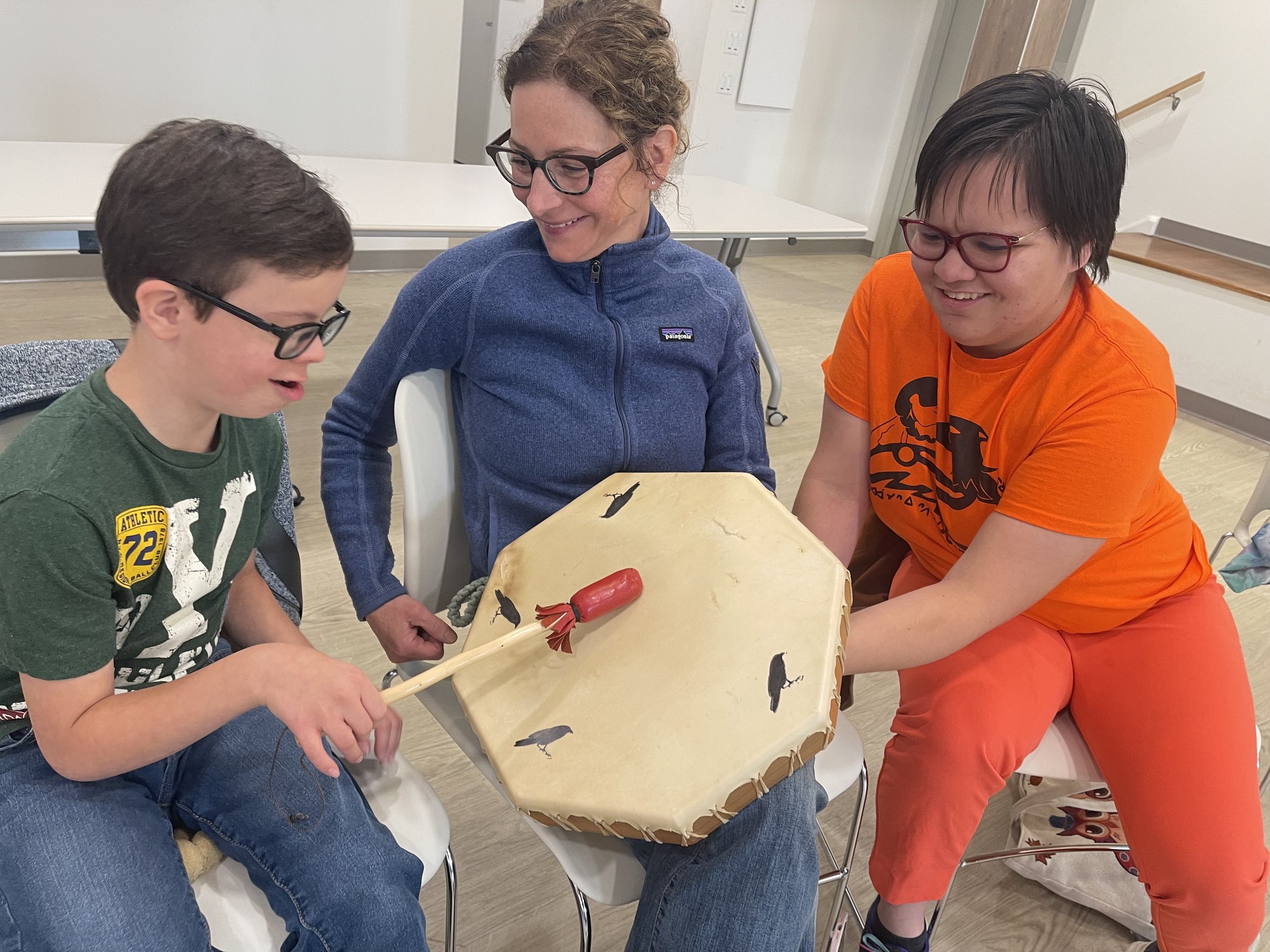Land Acknowledgement
We gratefully acknowledge that the Braille Tone Music Society operates on the traditional territories of the Indigenous peoples of Treaty 6 and Métis Nation of Alberta, Region 4.
We respect the histories, languages and cultures of the Nêhiyawak (Cree), Anishinaabe (Saulteaux), Niitsitapi (Blackfoot), Metis, Dene, and Nakota Sioux. We recognize that these peoples have lived on this land for generations and generations and continue to live here.
This land means many things to us: beautiful trees, running animals, farming, gardening, northern lights, sunrises, sunsets, and a place for singing and dancing. We hope to learn more about the land we live on by respecting Elders and becoming stewards of the land.
We aim to support Indigenous communities by treating every person with respect, learning music by local Indigenous composers, and by protecting vulnerable people.
On September 30, 2023, the Braille Tones and Semitones marked Truth and Reconciliation Day by engaging in discussions around local Indigenous cultures, the land we live on, and by singing music by local Cree-Dene composer Sherryl Sewepegaham.
At the end of the day, we had composed the land acknowledgement that you read above - a personal reflection on what this land means to us, and how we can continue to learn and grow.
Statement of Equity
This Statement of Equity was developed through a thoughtful discussion with members of the Braille Tone Choir, in spring 2024.
Being equitable in our choir rehearsals means:
We provide lyric sheets or sheet music
We use many different methods to teach
We provide practice tracks
We use non-gendered language when referring to sections of the choir (ie. ‘sopranos and altos’ instead of ‘women’; and ‘tenors and basses’ instead of ‘men’)
The space we use is accessible with elevators, ramps, and accessible washrooms
We hold rehearsals at times which allow for folks to get to rehearsals as easily as possible
We accept everyone for who they are, no matter their racial or ethnic group, gender, gender identity, gender expression, sexual orientation, physical ability, religion, country of origin, socioeconomic status, language skill, or age/generation, across the range of neurodiversity.
We strive to make everyone feel welcome and able to participate by:
Remembering the importance of making people laugh
Having help from section leaders and volunteers
Greeting everyone who enters the space kindly
When we look at the choir, we hope the world will see that:
We are a reflection of our diverse world
We celebrate diversity in all ways
We believe that representation matters
When we consider disability, we find it important to:
Lessen or remove barriers
Recognize that we all play a part in inclusion


